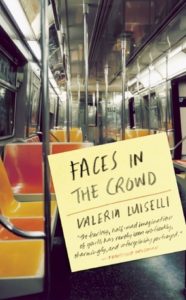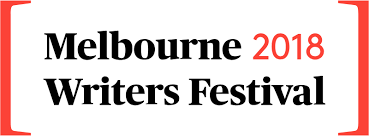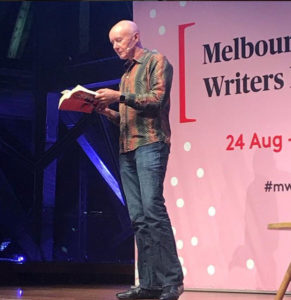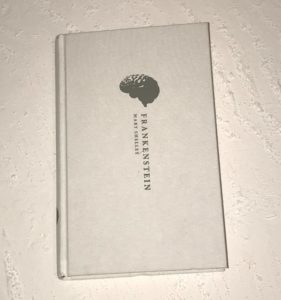I went into 2018 with no real reading goals; I wanted to see where that would lead me. It, in fact, pushed me into my own corner of the bookish world. I love translated literature and I want to promote it more than I already do. Reflecting back on the year, all my favourite books were works of translation. Just over 75% of my reading was translations and it probably would have been higher if it was not for book clubs. From that 75%, I did focus on trying to keep a gender balance and it seems that I achieved that, with 52% being women in translation. I am happy with the direction of my reading in 2018 and I am hoping to see a continuation in 2019.
Now is that time where people start posting their favourite lists. I am tempted to do a count down with music, films and television shows but I am unsure those lists will be as interesting as this post. So, for now here are my favourite reads from 2018.
 15. The Door by Magda Szabó (translated by Lex Rix)
15. The Door by Magda Szabó (translated by Lex Rix)
Episode four on my podcast, my wife and I listened to the audiobook while on a road trip. Magda Szabó is a great writer and I loved the way she blended auto fiction with what I read as an allegory of the state of Hungary under a collapsing Soviet rule. I am yet to pick up more Szabó but I know she is someone that I need to get back to in the near future (but I am sure I could say the same about many authors.
 14. Purge by Sofi Oksanen (translated by Lola Rogers)
14. Purge by Sofi Oksanen (translated by Lola Rogers)
I had read Sofi Oksanen in the past and I found her writing overly complex, to the point where I almost dismissed her for the future. Not that When the Doves Disappeared was a bad book, I just felt like I was not smart enough and the writing fragmented in a weird way. Purge, on the other hand, was a much better book; a literary thriller, which is right up my alley, which you will soon discover from the rest of this list.
 13. Flights by Olga Tokarczuk (translated by Jennifer Croft)
13. Flights by Olga Tokarczuk (translated by Jennifer Croft)
Winner of the Man Booker International Prize means this book hopefully is getting the attention it deserves. I read this while trying to complete the entire longlist and what drew me to this novel is the unique blend of travel writing and philosophical musing. Sure, this is a work of fiction in the loosest way possible, but who cares, this was just a joy to read. I have my next Olga Tokarczuk ready and waiting, and I have high hopes, 2019 is going to be a great reading year.
 12. The Sound of Things Falling by Juan Gabriel Vásquez (translated by Anne McLean)
12. The Sound of Things Falling by Juan Gabriel Vásquez (translated by Anne McLean)
Can I call 2018 the year of Juan Gabriel Vásquez? I read two amazing novels by this author and I now consider myself a huge fan. There is something about the way he writes himself into his novels about Colombian history. In The Shape of the Ruins we get to learn about the political history of Colombia, and The Sound of Things Falling explores the effects the cartels had on him and Colombia. I am now watching Narcos just to learn more.
 11. Convenience Store Woman by Sayaka Murata (translated by Ginny Tapley Takemori)
11. Convenience Store Woman by Sayaka Murata (translated by Ginny Tapley Takemori)
A book I still think about and it pleases me that it has plenty of literary buzz around it. I am not sure if this is auto fiction but I know Sayaka Murata worked in a convenience store, that is beside the point. Keiko Furukura is happy in her role as a convenience store woman, but social pressures expect more from her. This book challenges social expectations and tries to remind us that we should never judge anyone, not even a fictional character.
 10. The Unwomanly Face of War by Svetlana Alexievich (translated by Richard Pevear and Larissa Volokhonsky)
10. The Unwomanly Face of War by Svetlana Alexievich (translated by Richard Pevear and Larissa Volokhonsky)
There is not enough translated non-fiction on my list, and I know I need to read more. The Unwomanly Face of War was such an amazing book, but my love for Svetlana Alexievich might make me bias. I really like the way Alexievich collects stories from the people to create a narrative. In this one, we explore just how many women helped Russia in World War II despite the amount of criticism they received from the men around them. Truly these are the unsung heroes of war, stepping up to serve and help in any capacity possible.
 9. La Bastarda by by Trifonia Melibea Obono (translated by Lawrence Schimel)
9. La Bastarda by by Trifonia Melibea Obono (translated by Lawrence Schimel)
Episode five on my podcast, & quite possibly on of my favourite episodes, but maybe that is because my wife & sister-in-law did most of the talking. The first novel by an Equatorial Guinean woman to be translated into English is an accomplishment alone, but to have this book explore the queer journey from an African view point makes it extra special. I do not know much about Fang culture, their struggles are not that different to those of a Westerner. Even looking at coming of age journey from a western perspective, there is so much to get from this novel.
 8. Die, My Love by Ariana Harwicz (translated by Sara Moses and Carolina Orloff)
8. Die, My Love by Ariana Harwicz (translated by Sara Moses and Carolina Orloff)
I have probably talked about my love for Argentinian literature too much, but this short little novel is a great example of why I love it. In under 150 pages Ariana Harwicz was able to pack so much more raw emotion into her book than I thought was possible. This is so intense & emotional, it will hit you hard, but I think it is worth it. I have never experienced post-natal depression/psychosis, but I now have a small idea of what it must feel like. Female Argentinian writers are doing amazing things for the literary world, I recommend you pay them attention.
 7. Aetherial Worlds: Stories by Tatyana Tolstaya (translated by Anya Migdal)
7. Aetherial Worlds: Stories by Tatyana Tolstaya (translated by Anya Migdal)
Yes, this was another episode of my podcast (episode seven), thank you for noticing. Tolstaya must be living in the shadow of her family name, can she ever compare to Leo Tolstoy? She has proven to me at least that she can carry this huge legacy. Her stories are unique in the way it combines her own thoughts with the aetherial world. The highlight in this book will have to be Smoke and Shadows, it really brings out her wicked sense of humour.
 6. Fever and Spear (Your Face Tomorrow 1) by Javier Marías (translated by Margaret Jull Costa)
6. Fever and Spear (Your Face Tomorrow 1) by Javier Marías (translated by Margaret Jull Costa)
This may only be book one in the Your Face Tomorrow trilogy but there is something about the writing that makes me want everything ever written by this author. I love a good literary thriller but there is so much more to this novel. It is a metaphysical novel with some of the most elegant writing I have ever read in a thriller-like novel. At times you are not sure if you are reading a spy novel or a work of philosophy and I loved every moment I had with this book.
 5. Disoriental by Négar Djavadi (translated by Tina Kover)
5. Disoriental by Négar Djavadi (translated by Tina Kover)
If you ask me, the wrong book won the first National Book Award for Translated Literature. Disoriental was my pick and I did read the entire longlist. Not to argue but if you are going to debut a new literary prize, your first winner really speaks to the tone of the award. Obviously, Flights could never win because the National Book Foundation needed to distinguish themselves apart from the Man Booker, but you picked the same author that won the inaugural Warwick Prize for Women in Translation last year. I am not bitter about this choice.

4. Faces in the Crowd by Valeria Luiselli (translated by Christina MacSweeney)
Yes, this was episode two on my podcast, do you see a trend? I think I just love being able to talk about books with people. This book feels like it is diving into the world of translating and as you can see, I read a lot of books in translation. You can see plenty of trends in my reading from this list along, women in translation and Latin American literature for example. When the first page has a line like “I worked as a reader and translator in a small publishing house dedicated to rescuing ‘foreign gems.’ Nobody bought them, though, because in such an insular culture translation is treated as suspicion. But I liked my work and I believed that for a time I did it well.” I know I am hooked.
 3. The Seven Madmen by Roberto Arlt (translated by Nick Caistor)
3. The Seven Madmen by Roberto Arlt (translated by Nick Caistor)
This Argentinian classic has an afterword by Roberto Bolaño, which gives you a sense of the style and was the reason I picked this book up. The gritty pulp-like writing, is one of my favourite styles of writing to read. What elevated it to the top of my list is just how relevant this book is, ninety years later. Exploring the fanaticism of extremist politics, the book is described as “an uncanny prophesy of the cycle of conflict which would scar his country’s passage through the twentieth century” but really this feels prophetic to the rest of the world as well.
 2. Sphinx by Anne Garréta (translated by Emma Ramadan)
2. Sphinx by Anne Garréta (translated by Emma Ramadan)
I have a top fifteen list prepared for the end of the year, but then I read Sphinx and good bye Out by Natsuo Kirino (trans. by Stephen Snyder). I was so close to putting this at number one, it is that good. Sphinx is a non-binary love story from one of the few female members of Oulipo. I love experimental literature and Garréta challenged my gender expectations by never revealing the gender of the narrator or their love interest. Impressive, but can you imagine trying to avoid genders when you write in French?
 1. The 7th Function of Language by Laurent Binet (translated by Sam Taylor)
1. The 7th Function of Language by Laurent Binet (translated by Sam Taylor)
Have you ever read a book and thought this was written just for me? This is how I feel about The 7th Function of Language. This is a literary thriller that explores the world of literary criticism. Roland Barthes, Jacques Derrida, Umberto Eco, Gilles Deleuze, Michel Foucault, Judith Butler, and Julia Kristeva all play a role in this book and I love the way Binet explores literary criticism without making it difficult for the reader to follow along. I am sure a literary expert might get annoyed by all the explanations of literary theories, but I really appreciated it.


 There is a part of me that looks down at literary prizes. I have been thinking about this since reading The Parrots by Filippo Bologna (translated by Howard Curtis), the politics that goes into selecting a list and a winner really detracts from literary merits. I agree there needs to be a better balance in representation when making a longlist for a prize, but every judge has their own tastes and opinions, it becomes more about compromise than merit. Is there a perfect solution? No, we have to do the best with what we have.
There is a part of me that looks down at literary prizes. I have been thinking about this since reading The Parrots by Filippo Bologna (translated by Howard Curtis), the politics that goes into selecting a list and a winner really detracts from literary merits. I agree there needs to be a better balance in representation when making a longlist for a prize, but every judge has their own tastes and opinions, it becomes more about compromise than merit. Is there a perfect solution? No, we have to do the best with what we have. Dear Jeff Lindsay,
Dear Jeff Lindsay, Dear Haruki Murakami,
Dear Haruki Murakami, Dear John Green,
Dear John Green,
 15.
15.  14.
14.  13.
13.  12.
12.  11.
11.  10.
10.  9.
9.  8.
8.  7. Aetherial Worlds: Stories by Tatyana Tolstaya (translated by Anya Migdal)
7. Aetherial Worlds: Stories by Tatyana Tolstaya (translated by Anya Migdal) 6.
6.  5.
5. 
 3.
3.  2. Sphinx by Anne Garréta (translated by Emma Ramadan)
2. Sphinx by Anne Garréta (translated by Emma Ramadan) 1.
1. 
 I talked a little about my vacation to Tasmania but I want to take some time to talk about Melbourne. After spending two wonderful weeks exploring what Tasmania had to offer, we finished off with a weekend in Melbourne to attend the Melbourne Writers Festival. There has been sparks of negativity going around about the festival, often directed at the new artistic director, Marieke Hardy. Most of the complaints were directed towards how different the program was this year. The festival had adopted a theme of ‘a matter of life and death’. Which was interpreted as a grim topic but in reality there was so much to discuss.
I talked a little about my vacation to Tasmania but I want to take some time to talk about Melbourne. After spending two wonderful weeks exploring what Tasmania had to offer, we finished off with a weekend in Melbourne to attend the Melbourne Writers Festival. There has been sparks of negativity going around about the festival, often directed at the new artistic director, Marieke Hardy. Most of the complaints were directed towards how different the program was this year. The festival had adopted a theme of ‘a matter of life and death’. Which was interpreted as a grim topic but in reality there was so much to discuss.
 Two hundred years ago, a book was published that literally changed my life. It is very rare to say that a book could have such a life changing effect on someone but in my case it is actually true. It happened about nine years, without going into too many details, I was not happy with myself. I was directionless and went through a self-destructive phase. While it was not just literature that saved me, I do have to give credit to my wife as well. Books ignited the spark in me that made everything else click into place. I am a very different person to who I was back then, I suddenly turned into a passionate and voracious reader thanks to Mary Shelley’s
Two hundred years ago, a book was published that literally changed my life. It is very rare to say that a book could have such a life changing effect on someone but in my case it is actually true. It happened about nine years, without going into too many details, I was not happy with myself. I was directionless and went through a self-destructive phase. While it was not just literature that saved me, I do have to give credit to my wife as well. Books ignited the spark in me that made everything else click into place. I am a very different person to who I was back then, I suddenly turned into a passionate and voracious reader thanks to Mary Shelley’s  The only advantage to becoming obsessed with reading so late in my life is that I have been able to track all the books I have read. However I often wonder if this is an advantage at times, does tracking my reading have value? When I load up my reading spreadsheet, I see a list of every book I have read since 2009 – all 1020 books. It is pretty impressive, and I do love looking at statistics, my main concern is the simple fact that these stats are starting to inform my reading life too much. I do agree that it is useful to be balanced in my reading but worry that it is dictating all my reading.
The only advantage to becoming obsessed with reading so late in my life is that I have been able to track all the books I have read. However I often wonder if this is an advantage at times, does tracking my reading have value? When I load up my reading spreadsheet, I see a list of every book I have read since 2009 – all 1020 books. It is pretty impressive, and I do love looking at statistics, my main concern is the simple fact that these stats are starting to inform my reading life too much. I do agree that it is useful to be balanced in my reading but worry that it is dictating all my reading.